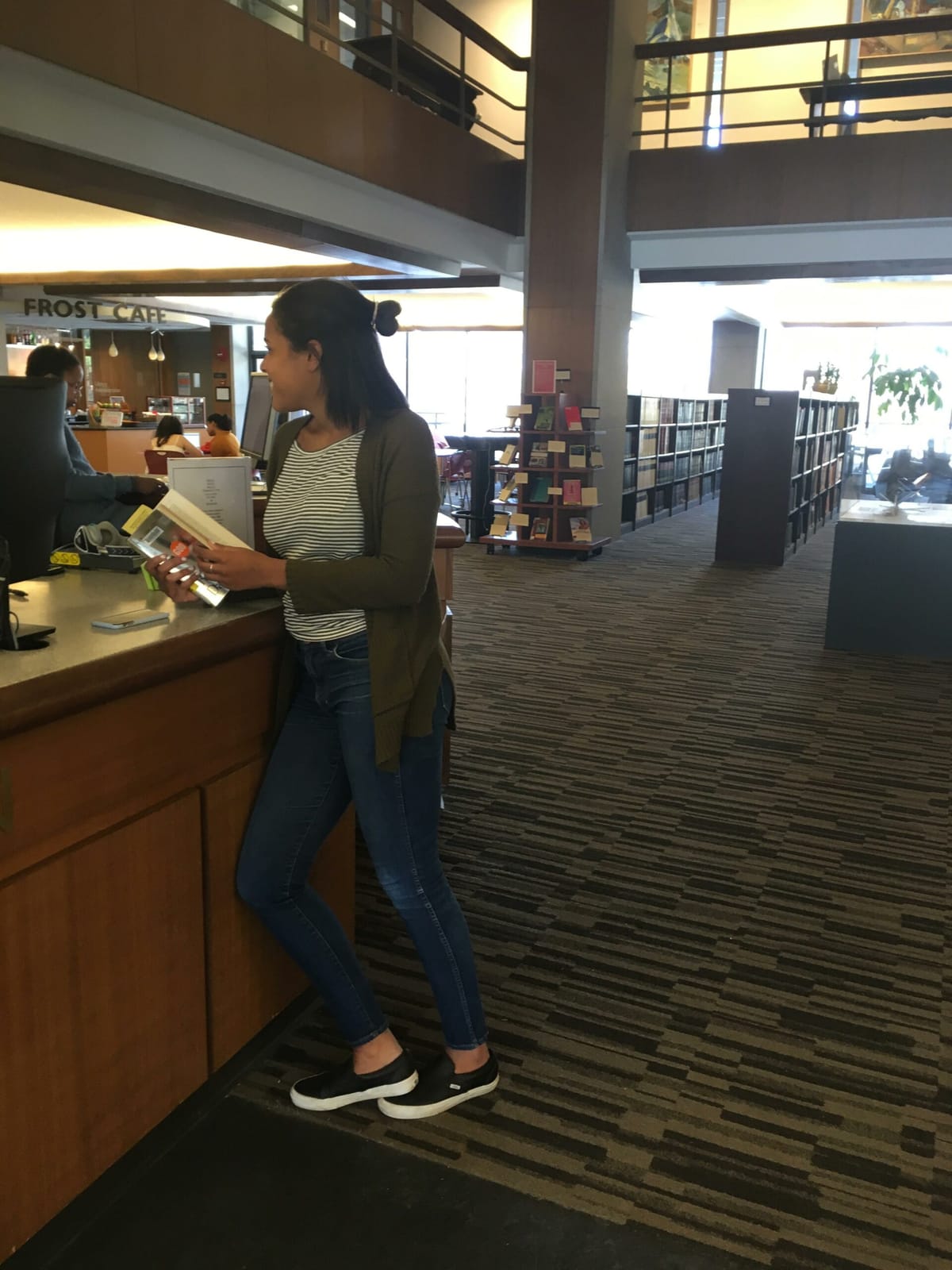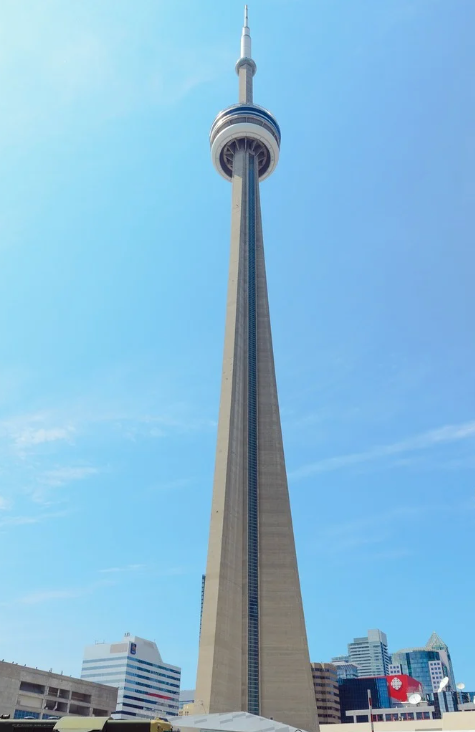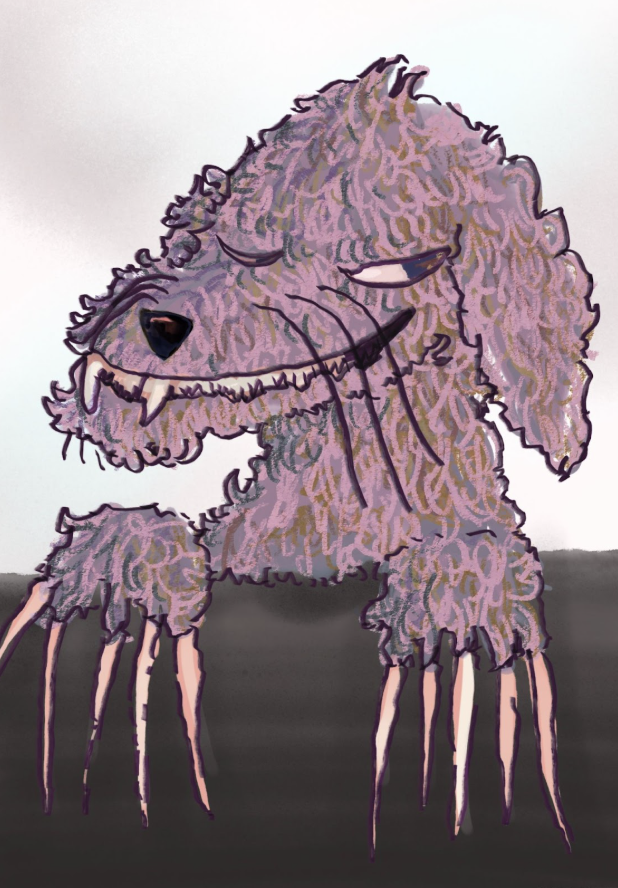Thesis Spotlight: Edzie ’17 Redefines Reality and Absurdity

Gabby Edzie ’17 is a senior English major writing a creative thesis. As she nears it’s final deadline, I had the chance to sit down with her and ask a few questions regarding her trajectory through the English major along with her creative writing process. As Gabby aptly observes, one of the most prized and influential aspects of the English major, and life at Amherst in general, is the opportunity to sit down with peers different from yourself and get to know each other, share thought processes and hopefully think of something new.
Q: What did you think you were going to major in coming into Amherst? How did you decide to become an English major, and what is your concentration?
A: Like everyone else, I thought I was going to be pre-med or econ for approximately ten minutes. So then I was like, what major will make me completely unemployable? English! In reality, I think I secretly (or not so secretly) always knew I’d be an English major. I’ve loved reading and writing my entire life. My parents often declare that reading to my siblings and me from an early age was their best decision. In addition to the never-ending opportunities to read and write, a hefty contribution to my love of the English major has been the sense of community that arises out of the discussion of literature. The courses that I’ve taken at Amherst have utilized literature and film as a doorway to discussions about otherwise seemingly indigestible concepts, like those of identity, relationality, race, gender and so on. The ideas I’ve been fortunate enough to examine have bubbled up from conversations that are complex, challenging and honest. It’s an amazing experience to be in a classroom in which everyone has some genuine personal investment in the subject matter.
My concentrations are in creative writing and film and media studies. Creative writing has always been a very important part of my life. I have a journal full of really spooky love poems from fourth grade. The first creative course I took, “Unreliabilities,” examined the reliability of narration in fiction and creative non-fiction. I love film and the courses I’ve had the opportunity to take at Amherst have only fostered that.
Q: How did your progression through the English major prompt you to write a thesis? Was there a point when everything clicked, and you just knew you wanted to write a creative thesis?
A: The creative writing courses I have taken at Amherst have not only made me a better writer, but they’ve given me a chance to really pinpoint my writing style, which has been really exciting. I noticed that when I had a creative course in my schedule, I would end up giving it all of my energy. As I mentioned, community in the classroom is really important to me, and with creative writing courses, students are really invested because their work is both inherently personal and shared with other students. I would spend hours working on my stories, and I became sort of obsessed. I knew pretty early on that if I were to write a thesis, it would be creative.
Q: How have your ideas evolved from the initial proposal? What does your thesis look like now — very close to the deadline — as opposed to what you thought it would be?
A: I’ve maintained the structure that I proposed — that is, the linked-story-cycle. A brief explanation: I’m writing four stories with four different protagonists that, somehow, all link together in the end. Thematically, I originally proposed to work with absurdity as it relates to foreign realities. Half of my project was to be set in the United States, and in those stories something narratively absurd would occur. The other half was to be set in Ghana and nothing absurd would happen, but it might seem that way to the American reader. I wanted my readers to have to ask themselves: What is absurdity and what is simply foreign? The project has maintained a lot of that, but I think I’ve drifted a little bit away from the whole absurdity objective. Instead of forcing my stories into a sort of hyper-absurd state, I want to ask readers to recognize realities that, although seemingly foreign, have the potential to be very real. I don’t want stories to fetishize unrecognizable cultures or life experiences. They’re not simply ‘absurd’; they’re based in reality.
It’s a little hard to step away from the ‘what is your thesis about’ speech I’ve given to a million people. Yet, ultimately, instead of linking foreign realities and absurdity, I’m distancing them. I guess it’s sort of hyperrealist. These situations are plausible, despite any absurdity you may detect at first glance. A big part of the shift came with the help of my advisors Naomi Jackson and Daniel Hall. They’ve encouraged me to focus more on writing what I want to write in my style rather than simply writing toward an objective.
On a more concrete level, now only one of my stories is set in Ghana!
Q: What is the most important or shocking thing that you have learned throughout the process?
A: In terms of technique, it has been a very valuable experience to work on such a long project. Prior to my thesis, my longest story had been around twenty pages. I’ve had to learn how to pace out my character and plot development, which has been pretty difficult. I’ve also never done a linked-story cycle, so I’ve had to pay careful attention to all the loose ends, making sure they all get tied in the end.
Speaking to the broader experience, my dad is from Ghana and a lot of the story that is set there is based on interviews I did with him. It has been amazing to hear more about his childhood.
Q: Where do you do your best writing?
A: I actually work best when there is a little bit of noise, so Amherst Coffee or Frost first floor. Probably Amherst Coffee more, because hanging out around a bunch of hipsters is a great cure for writer’s block.




Comments ()